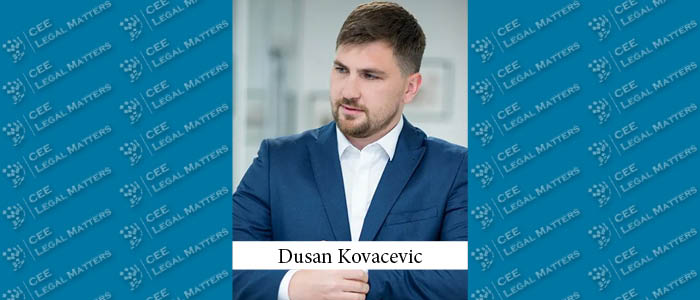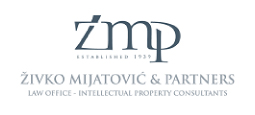The concept of exhaustion of trademark rights is a nuanced aspect of intellectual property law that might seem counterintuitive to those unfamiliar with the field.
This article explores this concept, focusing on how it is applied within the jurisdictions of Western Balkan countries. By systematically breaking down which rights are exhausted and whose they are, we aim to clarify this complex legal principle.
Trademark Exhaustion: Limiting Rights After First Sale
First and foremost, one of the primary rights of a trademark holder is the exclusive ability to market goods bearing the registered mark. However, this right can be restricted by the doctrine of exhaustion of rights.
For instance, imagine a pair of sneakers from a beloved brand. The company that produced these sneakers typically holds the trademark and can prevent any unauthorized first sales. However, once the sneakers are sold by an authorized seller, the trademark holder’s rights over this specific pair are exhausted. This does not permit the buyer to produce new sneakers with the same mark or to license the mark to others.
Types of Exhaustion of Intellectual Property Rights
The concept of exhaustion of rights represents a form of limitation on intellectual property rights. It restricts the freedom of the rights holder to exercise further control over goods bearing their marks after they have been initially placed on the market in a specific territory.
Depending on the geographical area to which the exhaustion of intellectual property rights applies, we can identify three types/systems of exhaustion:
- National: The right holder is entitled to prohibit the use of their trademark in connection with goods that have not been placed on the market by the trademark holder (or by authorized persons) in the territory of a specific country. Therefore, parallel imports to the country applying the principle of national exhaustion of trademark rights are not allowed.
- Regional: The right of the trademark holder is considered exhausted when the holder or an authorized person put goods labeled with their trademarks into circulation for the first time in any of the countries belonging to a certain region/group of countries. Therefore, parallel imports to the region/group of countries applying the principle of regional exhaustion of trademark rights are not allowed.
- International: The right of the trademark holder is considered exhausted when the trademark holder or any person with consent of the trademark holder put goods marked with trademarks registered in the name of the right holder into circulation for the first time anywhere in the world. Consequently, parallel imports will be allowed to the country applying the principle of international exhaustion of trademark rights.
Exhaustion of Rights in Western Balkans: A Country-Specific Overview
Interestingly, Western Balkan countries accept different types/systems of exhaustion of rights, despite their efforts to harmonize their intellectual property legislation with that of the European Union. For clarity, below is the list of Western Balkan countries with explanations of the systems/types of exhaustion of rights they accept:
- Albania: Adopts national exhaustion of rights. Once goods bearing the trademark are placed on the market in Albania by the holder or by an authorized person, further circulation of such goods in Albania will be allowed.
- Bosnia and Herzegovina: Adopts international exhaustion of rights. Once goods bearing the trademark are placed on the market anywhere in the world by the holder or by an authorized person, further circulation of such goods in Bosnia and Herzegovina will be allowed.
- Montenegro: Initially adopts national exhaustion of rights. Once goods bearing the trademark are placed on the market in Montenegro by the holder or by an authorized person, further circulation of such goods will be allowed.
- North Macedonia: Adopts national exhaustion of rights. However, there may be issues in enforcing trademark rights against parallel imports as enforcement authorities are not keen to apply the principle of national exhaustion of trademark rights currently in force, as they consider this principle to be too restrictive from competition perspective.
- Serbia: Adopted the international system of exhaustion of rights under the Trademark Law enacted in 2020, replacing the previous national exhaustion of rights system.
- Kosovo* (UN 1244): Perhaps the most interesting approach to this concept is found in this legally challenging jurisdiction. The Law on Trademarks enacted in 2022 combines multiple systems/types of exhaustion of rights, creating a new regional-national system.
The 2022 Law on Trademarks in Kosovo* formally kept the principle of national exhaustion of trademark rights as the previous Trademark Law. However, the new Law on Trademarks introduced several significant exceptions from national principle, making the whole system of exhaustion of trademark rights specific and hybrid.
In a nutshell, trademark holders can prevent circulation of goods bearing their trademarks (national principle), as long as those goods were not placed in any of these jurisdictions/regions (exceptions):
- Kosovo*;
- EU and EEA member states (Iceland, Liechtenstein, and Norway);
- Western Balkan countries (Albania, Bosnia and Herzegovina, North Macedonia, Montenegro, Serbia); and
- Countries with which Kosovo* has trade agreements signed (currently the UK and Turkey).
Common Provision and Strategic Approaches
A common feature of all provisions in Western Balkans countries regulating exhaustion of rights is the provision that it will not apply in cases where the trademark holder has a justified reason to oppose further placing on the market of goods bearing the trademark, especially if there has been a malfunction or other significant change in the condition of the goods after their initial placement on the market.
While intellectual property law is highly harmonized globally, each jurisdiction within the Western Balkans has unique applications of trademark exhaustion. It’s crucial for trademark holders and businesses to understand these variations to navigate the legal landscape effectively.
This text is for informational purposes only and should not be considered as legal advice. Should you require any additional information, feel free to contact us.
By Dusan Kovacevic, Counsel, ZMP


